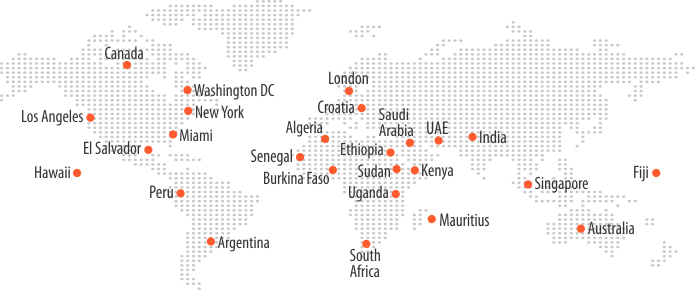Top 6 Trends in Cloud Services That are Shaping Businesses

Workplaces globally have accepted the ‘new normal’ of working culture by decentralizing which has exponentially increased the technology needs of businesses. In 2021, businesses are looking for agility and cost efficiency to combat the aftermath of economic shutdowns. And the cloud platform has become the inevitable solution. If we look at the telecom industry, cloud computing is allowing companies in the sector to focus on only essential business services rather than IT, server updates, and/or maintenance issues.
Though cloud migration has accelerated in the last few years, its potential to improve accessibility, scalability and flexibility made it an essential target for organizations while working remotely. Cloud services interlink numerous technologies and as a result, it is revolutionizing businesses.
Top 6 Developments in Cloud Services
Businesses are discovering the competence of employing cloud-hosted enterprise services to develop solutions that solve major problems of enterprise and ease their processes. According to Forrester Research, the global public cloud infrastructure market will grow 35% to USD 120 billion in 2021, as cloud computing technology continues to take center stage in the upturn from the pandemic. Following are the top 6 developments in cloud services that are shaping the landscape of businesses.
Artificial Intelligence
The fusion of artificial intelligence with the cloud gives countless opportunities to industries including telecom. This fusion has enabled companies in the telecom industry to analyse a large amount of data to classify traffic, obtain more accurate predictions, and detect of anomalies and thus optimize networks for better performance. This has increased the efficiency of the sector while adding value to the services they offer. Users will have customized packages as well as a specialized network that will meet their needs through AI and cloud computing in the foreseeable future.
Internet of Things
The Internet of Things (IoT) is currently one of the leading technologies as it is continuously innovating in real-time data analytics and cloud computing. There are several machine-to-machine communication, data, and processes occurring which are done easily through cloud computing. The majority of IoT devices are already utilizing cloud services to connect the systems and generate valuable data based on the and patterns of users.
For instance, telecom companies are employing IoT-powered Tower Operations Centers to integrate on-site IoT devices with cloud-based analytics to collect and analyse data from cell towers. This enables telecom businesses to monitor key performance indicators of active and passive equipment at remote sites.
Edge Computing
Edge computing provides significant support to IoT applications by offering optimized processing power and quick response. It has an exceptional ability to process, store data as well as lower the latency period. Edge computing is currently employed by businesses to maximize operational efficiency, enhance performance and safety, automate all core business processes, etc. Thus, it helps align the applications with the needs of enterprises.
Virtual Reality and Augmented Reality
For superior customer experience, businesses are actively applying applications of Virtual Reality (VR) and Augmented Reality (AR). Although it involves appropriate computing resources such as the cloud, which can deal with AR/VR applications. Cloud makes it easy for developers to build, test, and implement these applications.
By using the cloud with AR/VR, companies can provide an impressive customer experience as well as meet the core business purposes. Further on, the introduction of 5G in telecom is expected to open doors to new experiences and innovative customer engagement through AR and VR technology.
Blockchain
Blockchain is benefiting numerous sectors including telecom. as it can be effectively applied for tracking digitally recordable transactions. The technology has become crucial for the telecom industry as it offers improved transparency, traceability, and security. It is helping the telecom players to hold historical records of users without any chance of those records being tampered with and managing different aspects of the users’ accounts.
Whereas cloud service providers are making it easier for enterprises to adopt blockchain technology. It allows all sorts of organizations to utilize the benefits of blockchain that majorly includes large-scale data analysis and data security.
Hybrid and On-premises Cloud Solutions
Choosing between a public, private, or hybrid cloud environment can be tricky for some businesses. Each environment comes with a set of benefits and drawbacks when it comes to flexibility, performance, security, and compliance. As cloud ecosystems have matured over the years, companies have realized that there is no one ideal environment for all. Hybrid or multi-cloud environments have grown in popularity as they allow users to choose the specific elements of service providers’ offerings that fit their requirements.
Transforming the Telecom with Cloud
Cloud computing has a promising future as it easily blends with other emerging technologies to create sustainable business environments. Appropriate for companies of all sizes, cloud-based applications will continue to play a major role in technological advancements. All the industries are realizing the importance of hosted services. These services can be witnessed in the telecommunications industry with Hosted Voice services, Hosted Switching, Unified Communication services and more.
Related Posts
Cloud Services: Saving Grace For Organizations Amid The Pandemic
Cloud-Based IP PBX: One Small Step For Cloud, One Giant Leap For Unified Communications






